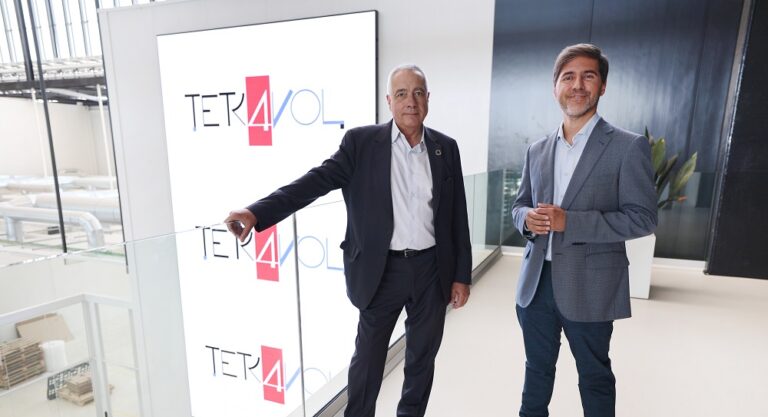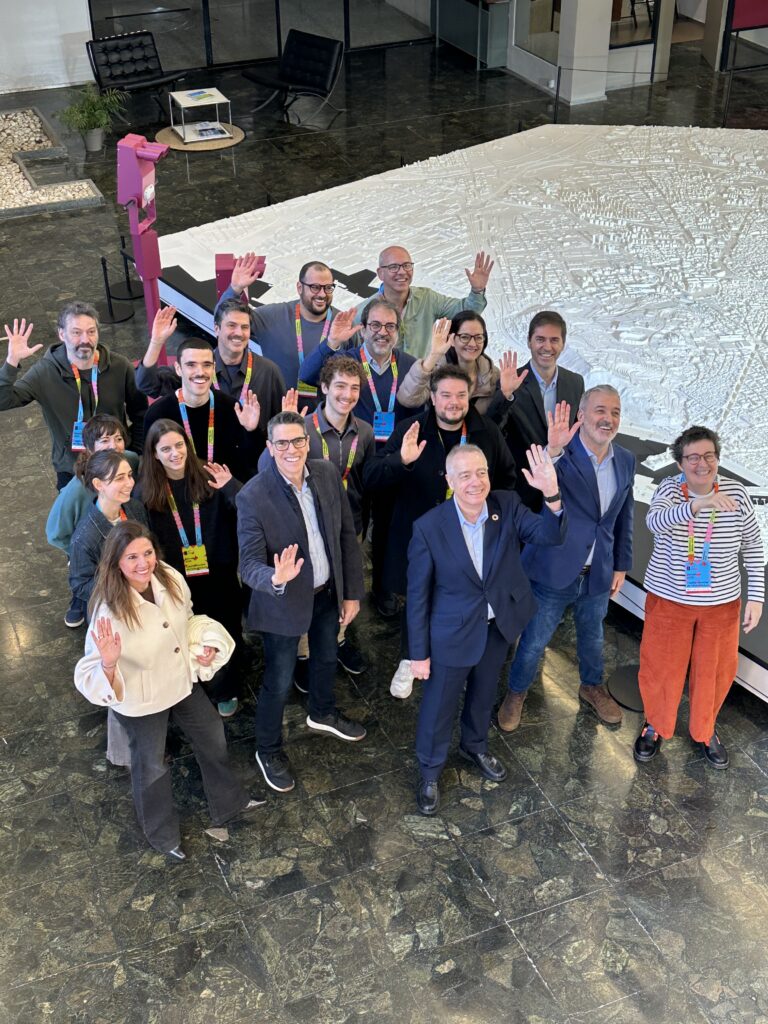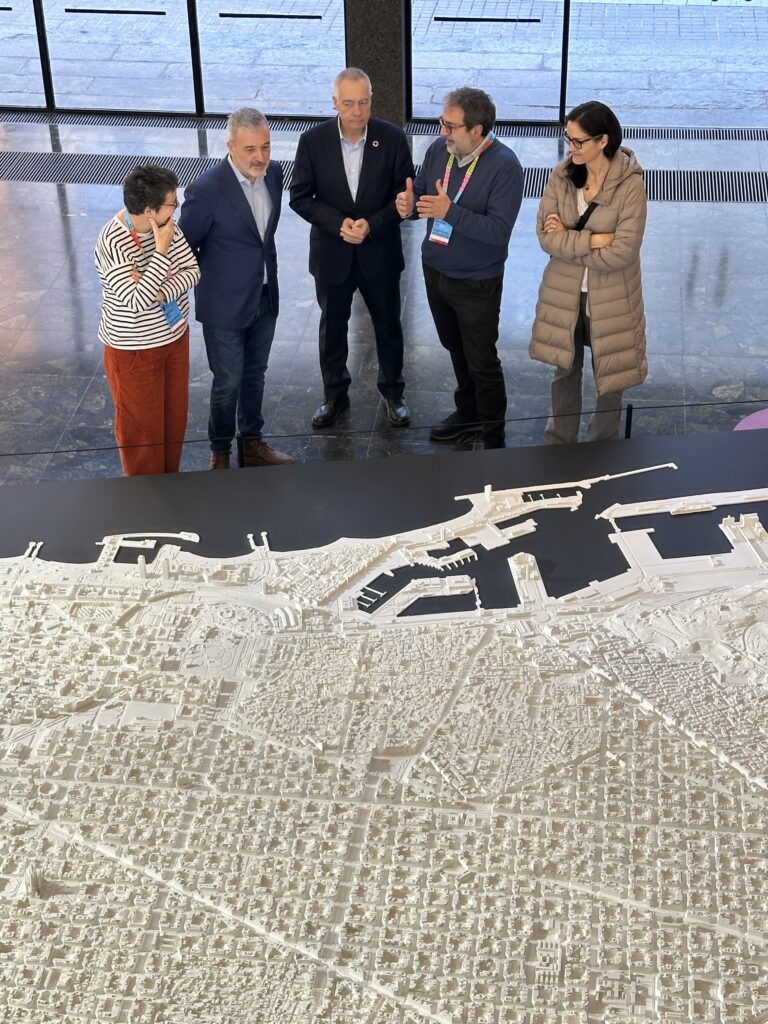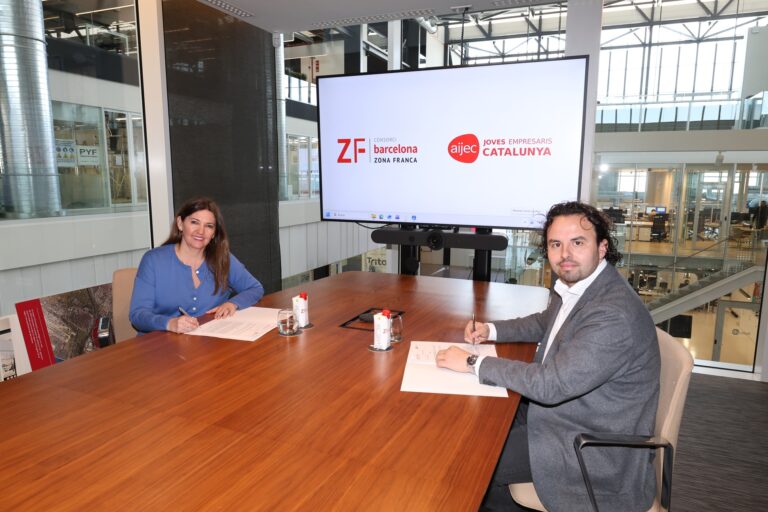Tetravol joins DFactory Barcelona’s Industry 4.0 ecosystem

23 de July de 2024
- The company specializes in the development of Virtual and Augmented Reality applications, focused on developing advanced solutions that integrate technology and innovative design
- Currently, the industry 4.0 ecosystem has facilities of 17,000 m2 where more than 30 companies have already been installed, in which more than 500 people work, and which exceeds 85% occupancy. In addition, it is expected that this year’s year the second phase of the emblematic building will be projected, which will reach a total of almost 100,000 m2
Barcelona, 23 July 2024.- DFactory Barcelona, the internationally renowned industry 4.0 ecosystem promoted by the Consorci de la Zona Franca de Barcelona (CZFB), continues to consolidate its growth and drive innovation with the recent incorporation of the company Tetravol in its facilities.
Tetravol, founded in 1998, is a company specialized in the development of Virtual and Augmented Reality applications, immersive and interactive digital experiences, providing complete solutions ranging from concept and design to development and support. Since its foundation with headquarters in Spain, Tetravol has established itself as a leader in its field at an international level, having developed projects in the United States, France, the United Arab Emirates, the Dominican Republic and China, among others.
Tetravol’s products and services range from virtual reality solutions for urban and architectural planning to VR applications for the education and business sector, including Holograms, interactive product configurators, Virtual Reality simulators for training and entertainment, Photogrammetry and Digital Twins, Web3 applications with Extended Reality, Gamification and Metaverse development. Their collaborations with the main providers of software and automation systems allow them to provide comprehensive solutions, adapted to the needs and challenges of each user.
The latest work carried out by Tetravol includes the development of an Augmented Reality system to assist in the rehabilitation of Antoni Gaudí’s Casa Batlló, a 3D website for training and awareness of the Sustainable Development Goals for the University of Barcelona, an avionics simulator on the operation of Turbofan engines and the interactive Aqua Protectors Augmented Reality experience recently installed in L’Aquàrium de Barcelona.
The special delegate of the State in the CZFB, Pere Navarro, stressed that “we celebrate the incorporation of a global company as unique as Tetravol in the ecosystem of DFactory Barcelona. Our goal is to continue promoting collaboration between companies, open innovation, and technological disruption thanks to specialized talent, which is why the arrival of companies as cutting-edge as Tetravol is key”.
For his part, the CEO of Tetravol, Hector Zapata, said that being part of the DFactory Barcelona ecosystem “not only means promoting the use of virtual reality to face the challenges of the industry, but also exploring new sectors and solutions in an increasingly digitized world. DFactory is an ecosystem of multidisciplinary projects, a source of solutions and exploration of new horizons. Tetravol wants to be part of it, to be present, to establish synergies and to make its solutions and knowledge in virtual reality, metaverse and digital architecture available to all companies”.
An ever-growing ecosystem
DFactory Barcelona continues to meet the objective of becoming the factory of the future, promoting and developing industry 4.0, new talent and new technologies and investments, in an unbeatable space. In this environment, technologies such as 3D printing, robotics, cybersecurity and blockchain, artificial intelligence or sensors give rise to a new way of producing, much more sustainable, generating synergies between companies and providing the possibility of establishing alliances with the rest of the organizations present in the building.
It is a project aligned with the Sustainable Development Goals of the United Nations 2030 Agenda, which facilitates the digitalisation of industry as a key lever for the ecological transition and promotes the circular economy by adopting new sustainable production and advanced manufacturing systems.
The ecosystem currently has facilities of 17,000m2 on four floors, where more than 30 companies have already been installed and in which around 500 people work, figures that endorse its 85% occupancy. In addition, it is expected that this year the second phase of the emblematic building will be projected, a boost that will allow it to reach nearly 80.000 m2 more in the coming years, so it will have almost 100.000 m2. With this, it is expected that a total of 1.500 people will work directly and 5.000 indirectly.



